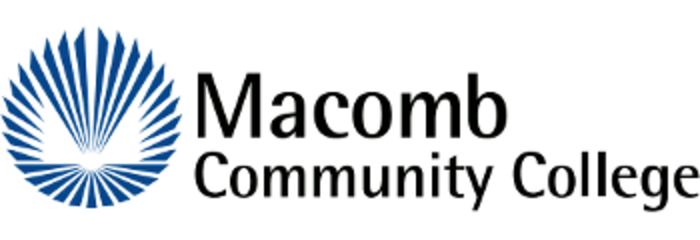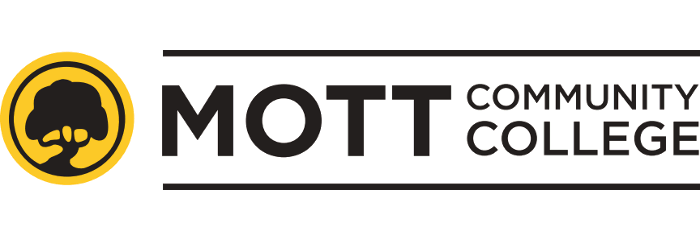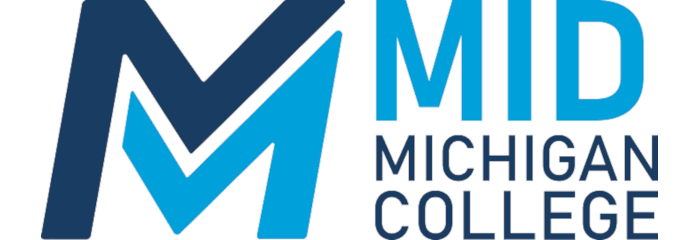Studying at an online community college in Michigan might be a low-cost way for Michigan residents to earn a professional certificate or associate degree. These colleges offer a broad range of subjects, allowing students to explore their academic interests for relatively little tuition compared to four-year colleges.
Our list below shows some of the best online community colleges in Michigan and highlights schools with high earnings potential followed by schools with high online enrollments. View our methodology for more details or learn more about OnlineU.
2025 Best Online Community Colleges in Michigan
#1 Jackson College Jackson College Jackson College
- Salary Score: A
- Median Earnings: $64,405
- Online Enrollment: 2,425 enrolled
- Location: Jackson
has a range of fully online certificates and associate degree programs. By enrollment, the college's largest program is the Associate in General Studies degree, which is available to distance learners. Business programs are also popular with Jackson students, especially the Associate in Arts in Business Administration degree and the Associate in Applied Science in Business Administration degree.
Why we like them: Jackson offers career-ready online programs you can enroll in. These programs give you real-world skills through online courses and training that prepare you for your next career. Some examples of Jackson’s career-ready online programs include topics like advanced manufacturing, emergency medical services, and vascular sonography. If you want to be well-prepared for your next role after graduation, consider attending Jackson.
#2 Lansing Community College Lansing Community College Lansing Community College
- Salary Score: B
- Median Earnings: $49,956
- Online Enrollment: 3,900 enrolled
- Location: Lansing
Lansing Community College () features associate degrees for online learners in a variety of majors. Available programs include African American history, education, journalism, cybersecurity, psychology, and many types of business. The college’s online certificates can also grant graduates an added professional credential in accounting, computer software testing, Microsoft Office specialization, and many more.
Why we like them: LCC makes it clear which of its programs are designed as transfer degrees and which are applied programs designed for professional growth. The college assigns advisors to work with each student to plot out a study plan called My Academic Pathway. This can help enrollees understand the requirements to graduate and ideally take electives that interest them.
#3 Washtenaw Community College Washtenaw Community College Washtenaw Community College
- Salary Score: B-
- Median Earnings: $45,564
- Online Enrollment: 4,709 enrolled
- Location: Ann Arbor
Washtenaw Community College () has online associate degrees and certificates. Most associate degrees require 60 credits and feature business majors, such as accounting, occupational studies, and retail management. WCC offers the same education, credentials, and support services as its on-campus programs.
Why we like them: WCC offers online workforce development programs you can pursue through certificates, such as HR skills and operations, administrative assistant, and core business skills. The school is a part of the Michigan Transfer Agreement, which means the general education core of its associate degrees can be transferred to a four-year university in Michigan. Majors available include general studies, liberal arts, and pre-actuarial science. We like that WCC provides opportunities for you to obtain in-demand skills or transfer to a four-year university.
#4 Macomb Community College Macomb Community College Macomb Community College
- Salary Score: N/A
- Median Earnings: $43,800
- Online Enrollment: 6,456 enrolled
- Locations: Warren (and 1 other)
Macomb Community College () provides several options for online associate degrees and certificates. One of Macomb's most popular programs is available online is the Associate of Business Administration in General Business. As a distance learner, you can earn online associate degrees in business management, global supply chain management, or marketing.
Why we like them: Macomb offers the Special Populations program for online students needing additional support to complete their degree or certification program. You may qualify for this program if you have a disability, come from an economically disadvantaged program, are a single parent, or have similar situations. If approved for the program, you may receive limited financial assistance, connections to Michigan Works clients, and referrals for community support, college resources, and programs.
#5 Oakland Community College Oakland Community College Oakland Community College
- Salary Score: N/A
- Median Earnings: $40,336
- Online Enrollment: 3,964 enrolled
- Locations: Bloomfield Hills (and 1 other)
Oakland Community College () provides a range of associate degree and certificate programs for interested applicants. Students can choose a generalist Associate in Arts or Associate in Science degree with a general studies focus if they want to finish prerequisite credits that typically transfer into a bachelor’s program. But OCC also has specialized associate degrees in subjects such as business administration, computer information systems, criminal justice, healthcare administration, and library services and technology.
Why we like them: OCC faculty and staff understand that they serve a population of working adults. The college has an average student age of 24 and three-quarters of students enroll part time while attending to other responsibilities. This is why OCC offers so many fully remote associate degree programs. The school also designs its programs to easily transfer within the Michigan state university system to help attendees who have their eyes on a bachelor’s degree.
#6 Mott Community College Mott Community College Mott Community College
- Salary Score: N/A
- Median Earnings: $37,696
- Online Enrollment: 2,959 enrolled
- Location: Flint
Mott Community College () offers a few online associate degrees and certificate programs. These include an Associate of Applied Science in Accounting, an Associate of Applied Science in Business Management, and an Associate of Applied Science in Computer Information Systems. The college also has online certifications in computer programming, computer science, web developer, and child development associate.
Why we like them: MCC offers an online readiness quiz to help you determine if online learning is the best educational path for you. You’ll simply answer a few questions about why you’re pursuing an online degree, your thoughts on learning new software, what you expect from instructors, and more. By completing this quiz, you and MCC better understand whether distance learning is a fit for you. We like that MCC offers a free quiz you can take before enrolling in online courses.
#7 Schoolcraft College Schoolcraft College Schoolcraft College
- Salary Score: N/A
- Median Earnings: $40,937
- Online Enrollment: 1,965 enrolled
- Location: Livonia
Schoolcraft College () provides several associate degree and certificate options that are 100% online. The college's Associate in General Studies program is one of these and has the highest enrollment. Online business programs, including the Associate of Applied Science in General Business, are also popular.
Why we like them: If you need assistance paying for tuition and books, SC may be able to help make your college experience more affordable. The college’s Hinkle Student Resource Center supports students in need of financial help with tuition, textbooks, and technology. The college also offers five-, seven-, 12, and 15-week courses to meet your online learning needs. We appreciate that SC provides additional opportunities for students to fund their education and flexible online schedules.
#8 St Clair County Community College St Clair County Community College St Clair County Community College
- Salary Score: N/A
- Median Earnings: $39,944
- Online Enrollment: 1,324 enrolled
- Location: Port Huron
St Clair County Community College () has many online associate degrees and undergraduate courses you can pursue. Some of these degrees meet the lower division requirements to transfer to a four-year university. Majors range from the humanities and social sciences to computer information systems and marketing. In addition to degrees and courses, you can pursue online certifications in topics like business, management, and marketing.
Why we like them: SC4 uses the Canvas learning management system for its coursework. On Canvas, you can access coursework, contact your instructors, and meet with classmates through discussion boards. If you’re not familiar with Canvas, the school provides an online training orientation to help you get comfortable with the digital learning platform. SC4 is known for having a diverse socioeconomic student body, with almost half of all students receiving income-based grants.
#9 Mid Michigan College Mid Michigan College Mid Michigan College
- Salary Score: N/A
- Median Earnings: $44,306
- Online Enrollment: 932 enrolled
- Location: Harrison
Mid Michigan College () has several online associate degrees and training credentials. Associate majors are available in business management, early childhood education, administrative assistant, and computer information systems. Examples of degrees that are 100% online include an Associate in Applied Science in Administrative Assistant Professional - Business, an Associate in Arts in Liberal Arts, and an Associate in Arts in Criminal & Social Justice. MMC offers several transfer-ready degrees that can help you transition into a four-year degree.
Why we like them: MMC offers several delivery options for online learning. These include regular online, real-time virtual technologies, ITV, hybrid, and HyFlex. These formats give you more flexibility when it comes to completing your degree online. We know that you likely have other obligations you manage, so we appreciate that MMC strives to accommodate the various needs of working adults.
#10 Northwestern Michigan College Northwestern Michigan College Northwestern Michigan College
- Salary Score: N/A
- Median Earnings: $40,959
- Online Enrollment: 873 enrolled
- Location: Traverse City
Northwestern Michigan College () has a few options for online learning leading to an associate degree or certificate. NMC’s online degree programs are a choice of general studies, business administration, or science and arts (another type of general studies degree intended to transfer into a bachelor’s program).
Why we like them: NMC tries to grant maximum flexibility to its students by offering four different methods for taking courses: face-to-face instruction, fully online and asynchronous, a hybrid of the two, or online with synchronous live-streamed classes. Some courses are also available in accelerated formats for students who want to finish their degree faster. NMC’s accelerated courses meet the same transfer requirements as other courses. NMC maintains a low student-to-faculty ratio, which increases the chances of individualized attention from instructors.
#11 Bay College Bay College Bay College
- Salary Score: N/A
- Median Earnings: $39,324
- Online Enrollment: 812 enrolled
- Location: Escanaba
Bay de Noc Community College () offers online associate degrees and certificate programs to interested learners. Available associate degrees include subjects such as computer and information technology, business, and human service. Other degree programs may have some online courses on offer but also require at least some in-person attendance.
Why we like them: BDNCC has a helpful, user-friendly website that organizes online degrees by career pathway. For example, someone browsing the computer science associate degree can click the career pathway link — Computer and Information Technology in this case — to learn general information about computer and IT careers, related degree and certificate programs at BDNCC, and popular majors they might find at the bachelor’s level. The college also awards hundreds of merit- and need-based scholarships each year to help students save on costs.
Why Trust Us?
27 Data Researchers
60,000 Degrees Researched Annually
20,000 Hours Spent on Research Annually
Launching Rankings Since 2009












